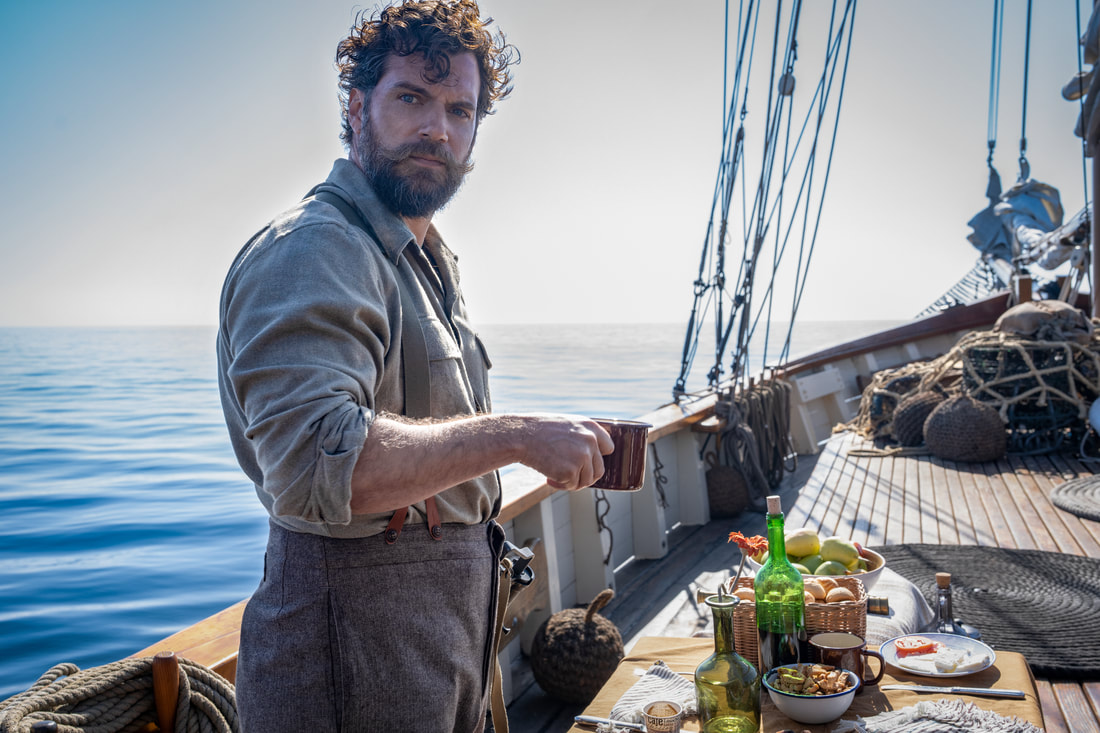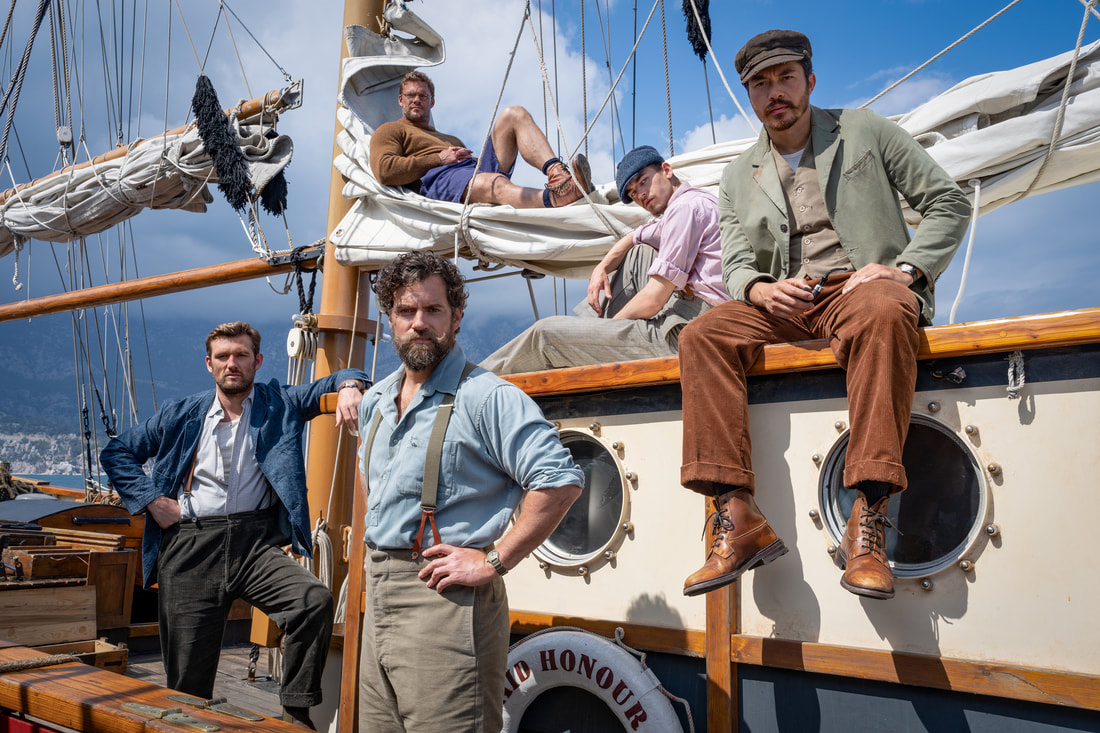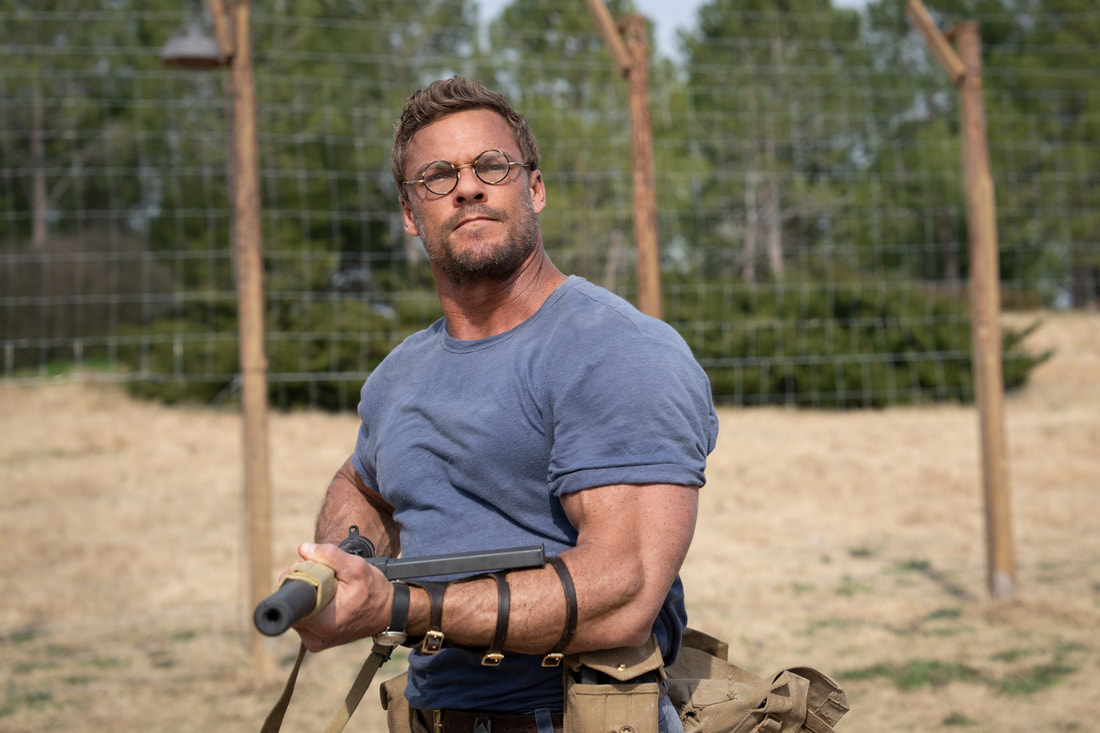|
Review by Daniel Lima As people grow older and their relationship with the world around them changes, it is natural for their tastes in all things to change as well, particularly in art. What once seemed inert and opaque can resonate deeply as new experiences create avenues into seemingly impenetrable objects. By the same token, what once was incredibly moving and stirring can grow stale or even unpleasant. So it was that I found myself watching The Ministry of Ungentlemanly Warfare, the latest film from Guy Ritchie, feeling not only bored by its ambling narrative and lack of dramatic stakes but also annoyed at the jeering laughter of the people around me. To my surprise, I found myself repulsed by what I saw, the gleeful and childlike abandon in approaching serious material that I had never so much as blinked at before. The film is a retelling of Operation Postmaster, a mission undertaken by British agents in World War II that was an early example of the use of special operations units in modern warfare. What had been a mission that lasted a half hour and resulted in no loss of life becomes a men-on-a-mission movie filled with violence, intrigue, and all the trappings of the well-worn genre, filtered through the particular sensibilities of Guy Ritchie. Considering that the director has recently had a creative second wind, delivering some of his best work in years, the prospect of him tackling a genre that — on the face of it — so perfectly suits him is undoubtedly intriguing. Sadly, it quickly becomes apparent that he would not be playing to his strengths here. A child of the post-Tarantino '90s indie boom, Ritchie is a director most at home playing within the milieu of seedy, grimy, male-dominated spaces, with men on the fringes of society bouncing off each other with the brusque, faux-macho dialogue that manages the trick of being so blunt and juvenile that it circles back around to clever. He is at his best when his characters are within their insular communities, navigating them as only locals can and allowing the audience to experience the world through them. That doesn't happen here. While the team assembled is full of the requisite gruff men of action, almost all of their screen time is spent on a boat, idly traveling to the location of the climactic battle scene. Some obstacles are invented to give the film some vague semblance of tension, but each is dismissed as quickly as it arises. Most of their interactions are spent communicating with headquarters and agents embedded in the base they've set out to attack, meaning they spend almost no time talking to each other. With no time developing these characters, giving them distinct personalities, and allowing them to bicker and bond, every moment spent with them borders on tedium. The espionage doesn't fare any better. A pair of secret agents — a black marketeer and a lounge singer — set the groundwork for the British commandos' raid. Ritchie's penchant for obvious, heavy-handed dialogue works when spouted by the kinds of men for whom it might pass as wit. When transposed to situations that require tact and a delicate touch, they become jarring, unwieldy, incongruous, and downright embarrassing. That it's this part of the story where the bulk of the narrative is actively being driven forward makes it even tougher to sit through. The action would ordinarily be the saving grace of a film like this. For the most part, what's here is pedestrian but serviceable. The action design is fine, incorporating the environment and setting up beats within the set pieces where the heroes are forced to adapt their own tactics. There's more cutting than necessary, occasionally ruining the sense of geography, and as the finale takes place at night, much of the action is obscured by darkness. That said, there are far worse offenders in the cinema of today. From the very first shootout, however, I couldn't help but feel discomfort as the audience cheered on every kill. The Second World War, particularly in the European theater, is one of the rare examples of a conflict with one side universally accepted as "the bad guy," as both the instigator and the perpetrator of one of the most horrific crimes in human history. If there's any war where one should be able to cheer on bloodshed with impunity, surely it would be the one with Nazis. Yet as the team gunned down uniformed fun with ecstatic abandon, smiling and laughing as blades and bullets ripped through unsuspecting victims, I felt more disturbed than anything else. Where did this newfound queasiness about cinematic violence come from? Obviously, there is the inherent jingoism. This film spends much time valorizing the British government, specifically the parts of the machine that pursued war. In this historical context, fair, the British were on the side of the angels. It's not a stretch, however, to see that Ritchie has a deep respect for his nation and sees the service of those depicted in the film as exemplary, not simply as a consequence of their adversary but because of their commitment to their country. It projects an air of righteousness that, in a contemporary film, is disquieting, particularly considering the form that nationalism has taken in the UK and elsewhere. Perhaps more potent is the weight of the violence — or the lack thereof. To throw out some comparisons, classic examples of the genre, like Castellari's The Inglorious Bastards, vary in tone, but the violence actually feels dangerous; the Nazi enemies feel like flesh and blood human beings. Saving Private Ryan might have big battle sequences that function as blockbuster spectacle, but it takes care to highlight the horror of being a part of it, regardless of how despicable the other side is. Even when an artist like John Woo fully embraces the aestheticization of wartime violence, as he does in Bullet in the Head, that must necessarily lend the violence a gravity that makes it impossible to become desensitized to.
In the case of The Ministry of Ungentlemanly Warfare, there is no dramatic or moral importance to any of the killing. The heroes are never in any jeopardy, and so when they casually fire off submachine guns into men who are dining and sleeping, it feels more like an execution than combat. Elaborating on why Nazis are bad is, of course, unnecessary, but the film spends more time emphasizing the moral righteousness of fighting for the British Empire than against the Third Reich. This lack of rooting the violence in anything beyond government interests, with the lack of characters root for or dynamic set pieces that would lend the action any danger, ultimately gives the battle scenes a bloodthirsty aura, where the act of killing is joyful and fun in its own right. That said, I say this as someone who has had war on the mind. Only a few days ago, I had seen Alex Garland's Civil War, an asinine film that adopted the veneer of a somber look at political conflict but proved to be even less serious than this one. The movie has stuck in my craw, and the more I've reflected on it, the more aggravated I've become with its simplistic, borderline irresponsibly bone-headed take on war. Days later, Iran launched missiles into Israel in retaliation for the destruction of their embassy in Syria, and I found myself contemplating the possibility that my own government might involve itself in a major war on behalf of a nation propagating apartheid and genocide. All of which is to say, maybe I went into this in exactly the wrong state of mind. As dull as the narrative is, as misapplied as Ritchie's style is to this material, perhaps I would not have had such a visceral reaction to the film if it weren't for how I felt. Perhaps this represents a line of demarcation in my appreciation for these kinds of stories, and going forward, I will bristle at films that glamorize and glorify soldiers and war in any way. Or perhaps I'll return to this in the future and find I was just in a bad mood. Right now, as I reflect on The Ministry of Ungentlemanly Warfare, one particular image sticks out in my mind. In the middle of the big climactic gunfight, after the heroes have killed scores of German soldiers and sailors with firearms, knives, axes, arrows, and explosives, the squad leader rounds a corner and levels his rifle at a hiding Nazi. Upon seeing how young the soldier is, he lowers the rifle and allows the boy to run off. Perhaps Ritchie saw this as an act that cemented the British veteran's nobility. Personally, I thought of all the men that he had stabbed in the back, blown up, gunned down from afar, and wondered how many would have been spared if only he'd gotten a good look at their faces. The Ministry of Ungentlemanly Warfare arrives in theaters April 19. Rating: 2/5
0 Comments
Leave a Reply. |
Archives
July 2024
Authors
All
|
|
|
disappointment media
Dedicated to unique and diverse perspectives on cinema! |



